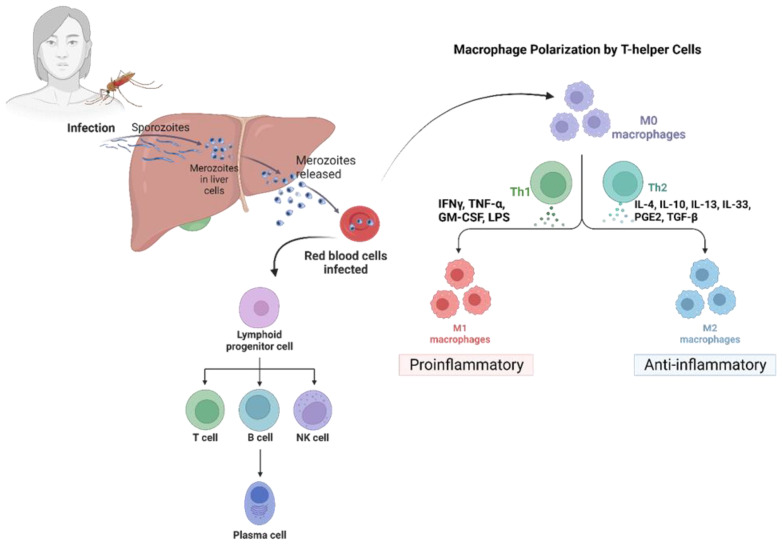Figure 2.
Plasmodium and infected red blood cells activate dendritic cells through parathyroid hormone (PTH)/PTH-related peptide type 1 receptor (PPR) and are phagocytosed, and their antigens are presented to T cells. PRR signaling leads to the secretion of cytokines that initiate inflammation via Th1 and Th2 cell differentiation and macrophage polarization. Macrophages are responsible for the regulation of inflammation during the infection phase. T cells help with B cell differentiation and antibody secretion and secrete IFN-γ, which activates macrophages. IFN-γ-activated macrophages engulf opsonized cells.

